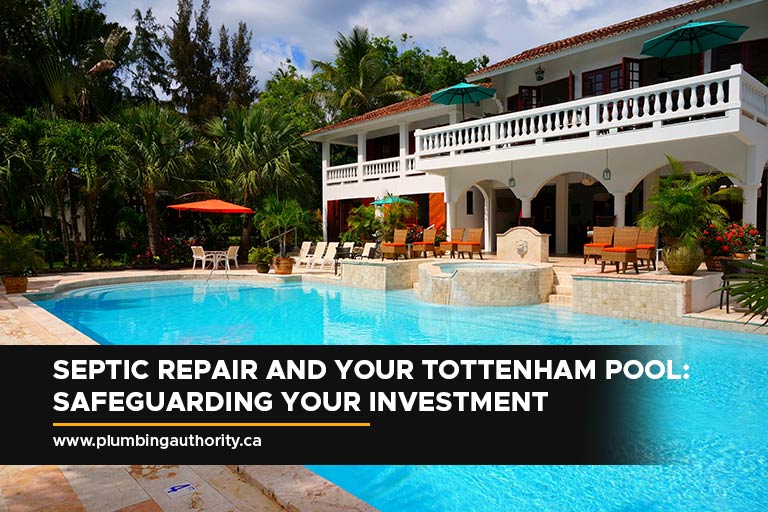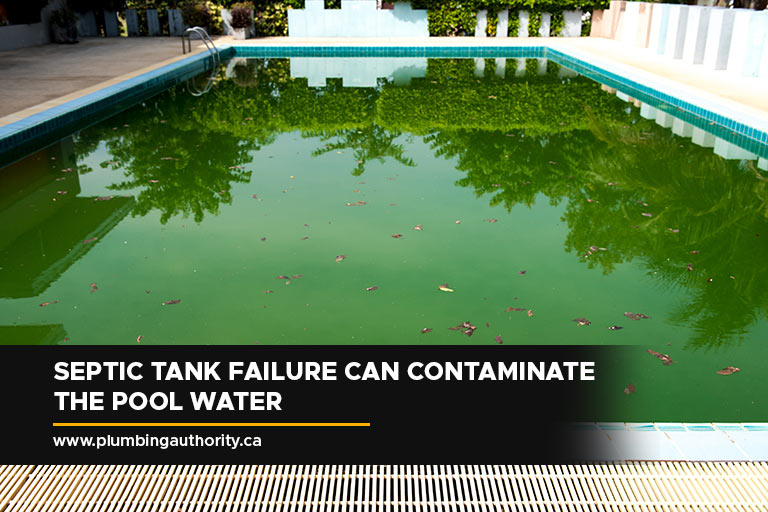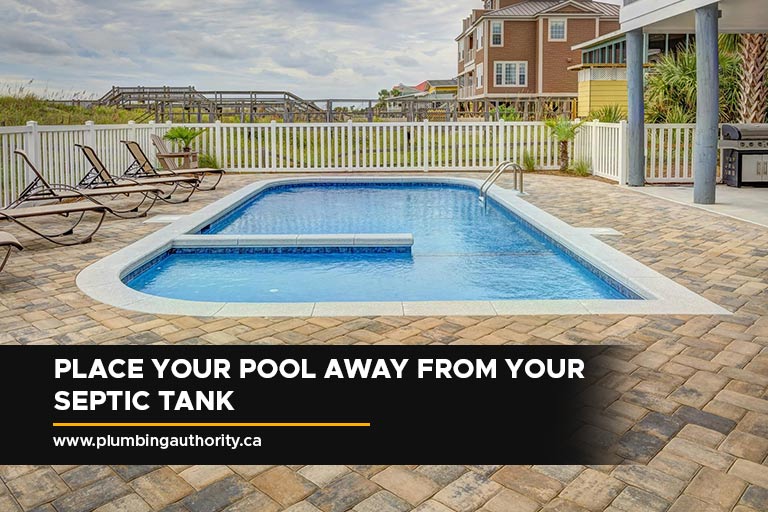
Maintaining the health of your septic system is crucial, especially when you have a swimming pool in your Tottenham home. The interconnection between a septic system and a pool is often overlooked, yet, understanding and managing this relationship is essential for safeguarding your property’s value and ensuring the longevity of your investments.
Septic systems are integral to residential properties, handling wastewater in a safe and efficient manner. However, when problems arise, they can have far-reaching consequences, including affecting the quality and safety of your pool. By fostering an understanding of how your septic system works, its key components, and its significance, homeowners can take proactive measures to avert potential issues. This article serves as a comprehensive guide, offering practical advice to ensure the optimal performance of your septic system while keeping your pool in pristine condition.
Understanding Your Septic System
A septic system is an underground wastewater treatment structure, commonly used in areas lacking centralized sewer systems. It utilizes a combination of nature and proven technology to treat household wastewater from bathrooms, kitchen drains, and laundry. The key components of a septic system include the septic tank, the drain field, and the soil. Microorganisms in the soil further treat and disperse the treated wastewater.
Understanding the functionality and importance of each component is vital. The septic tank separates solids from liquids, allowing decomposition. The liquid effluent then flows into the drain field, where it is further treated by the soil. Proper functioning of these components is essential for the system’s efficiency and preventing groundwater contamination. Regular maintenance ensures longevity and prevents costly repairs, underscoring the system’s importance in protecting public health and the environment.
How Septic Issues Can Impact Your Pool

Septic tank failure can contaminate the pool water
Septic system malfunctions can adversely affect your pool, creating health hazards and potentially leading to costly repairs. Recognizing the potential impacts is crucial for homeowners.
- Contamination Risk: A failing septic system can lead to the infiltration of harmful pathogens, such as bacteria and viruses, into the soil and water, posing a serious health risk to swimmers. This can lead to mild to severe waterborne diseases and infections, emphasizing the importance of regular vigilance in septic system maintenance.
- Unpleasant Odours: A septic system failure can cause unpleasant odours in a pool area, indicating a problem. These smells not only indicate the presence of potentially harmful gases but also make the area unpleasant. Therefore, it’s crucial to address septic system issues promptly to maintain a refreshing and enjoyable pool area. to restore the outdoor space’s appeal and ensure it’s safe for use.
- Soil Erosion: Leaking septic tanks can cause soil erosion near your pool area, disrupting its natural structure and stability. This can cause uneven settling or cracks in the pool’s walls or foundation, leading to significant repair costs and potentially unsafe conditions for pool users.
- Landscape Damage: Overflowing or leaking septic systems can cause water to accumulate in your yard, causing saturated conditions that harm your landscaping and pool area. This moisture can also affect the pool’s underground piping, potentially leading to leaks. It’s crucial to maintain a functioning septic system to maintain the aesthetics and integrity of your outdoor space.
- Increased Maintenance Costs: A malfunctioning septic system can significantly affect your pool, requiring increased maintenance and costs. Septic fluids can disrupt the water’s balance, necessitating additional treatments and repairs. This highlights the importance of regular septic system maintenance in ensuring safe and enjoyable swimming conditions. It underscores the interconnectedness of your property’s wastewater management and recreational features.
Protecting Your Pool Alongside Septic Health

Place your pool away from your septic tank
Ensuring the health of your septic system is pivotal in protecting your pool. Homeowners can take several steps to prevent septic issues from impacting their pool.
- Regular Septic Maintenance: Annual inspections and regular septic tank pumping are crucial to avoid overflows and leaks, which could lead to costly repairs. This proactive approach allows for the early detection of issues, ensuring they are addressed before becoming serious problems.
- Proper Landscaping: Strategically planting trees and shrubs at a distance prevents root intrusion, which can damage septic tanks and pipes. Opt for landscaping that facilitates water absorption in areas away from the septic system and pool to prevent unwanted water accumulation.
- Water Usage Management: Managing household water use reduces pressure on your septic system. Installing fixtures that save water and spreading out water-intensive tasks, like laundry, can significantly mitigate the risk of overwhelming your system, ensuring its longevity and efficiency.
- Chemical Use Caution: Harsh chemicals can kill the beneficial bacteria in your septic system, disrupting its ability to process waste. Avoiding these substances helps maintain the necessary microbial balance, ensuring effective wastewater treatment and system health.
- Pool Placement Consideration: Careful consideration of your pool’s location relative to your septic system and drain field can prevent potential contamination and structural issues. Ensuring adequate distance and avoiding downhill placements from septic areas are key preventive measures.
- Drain Field Protection: The soil in your drain field needs to remain uncompacted to efficiently treat and disperse wastewater. By avoiding driving or parking on it, you prevent soil compaction, ensuring the septic system continues to function properly.
- Monitor Pool and Septic System Proximity: Regularly assessing the distance and elevation between your pool and septic system is essential to prevent cross-contamination. Maintaining a safe separation helps protect pool water from septic system leaks or overflow.
- Educate Household Members: Educating everyone in your home about the importance of septic system maintenance and its relationship to pool safety is crucial. Promoting responsible water and waste practices helps protect the integrity and safety of both your septic system and pool.
Understanding the intricate relationship between your septic system and pool is crucial for any Tottenham homeowner. By taking proactive steps to maintain septic health, you can prevent a multitude of issues that could compromise your pool’s integrity, safety, and overall enjoyment. Remember, safeguarding your investment starts with regular maintenance and responsible management of both your septic system and pool.
For expert advice or assistance with septic system maintenance, contact Plumbing Authority at (647) 992-7473. Our team of professionals is equipped to ensure the optimal performance of your septic system, protecting your pool and preserving the value of your Tottenham home.




